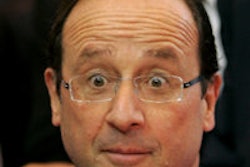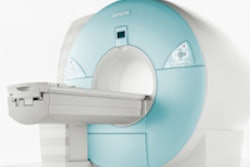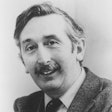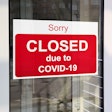
French radiologists have welcomed a significant loosening of the specialty's quotas for the next five years. The initiative is designed to cope with the looming shortage of radiologists and rising demand for imaging, but will it be enough to meet the country's long-term recruitment challenges?
As many as 245 graduates in medicine will be able to specialize in radiology by the end of 2015, which represents an increase of 33 compared with 2014. A projected 242 places will be available in 2016, followed by 244 in 2017 and 2018, and 243 in 2019.
 To bring more radiologists to rural areas, we need more radiologists, Dr. Louis Boyer said.
To bring more radiologists to rural areas, we need more radiologists, Dr. Louis Boyer said.The move came last month, following advice from the Observatoire National de la Démographie des Professions de Santé (ONDPS, National Observatory of Health Professions), which works closely with France's radiological G4. The latter -- which comprises the Collège d'Enseignants de Radiologie Française (CERF, French College of Radiology Teachers), the Fédération Nationale de Médecins Radiologues (FNMR, The National Federation of Independent Radiologists), the Sociéte Française de Radiologie (SFR, French Society of Radiology), and the Syndicat des Radiologues Hospitaliers (SRH, Syndicate of Hospital Radiologists) -- had been pushing for such an extension for many years.
"This is a very welcome and wanted boost. For years we had the feeling we were not being heard out. But the public authorities have become aware of the situation, which is serious," said Dr. Louis Boyer, president elect of the CERF and chair of the imaging and interventional radiology department at the CHU Hôpital Gabriel-Montpied in Clermont-Ferrand.
Radiology is an aging profession in France, with an average age of around 51 and only 1,000 radiologists being younger than 40 (see chart). Out of the 8,000 or so active French radiologists, 1,500 are due to retire within the next 15 years, meaning that there will not be enough radiologists to fill the gap.
Adding to these concerns, the demand for imaging studies is growing, and so is the need for radiology to be available 24/7. This has fueled fears that the new measure will not be adequate to curb the looming deficit.
 Radiologists' age pyramid in metropolitan France (CNOM, medical demography atlas, 2011).
Radiologists' age pyramid in metropolitan France (CNOM, medical demography atlas, 2011)."A strong signal has been sent this time. We were heading for disaster if we didn't do anything. These figures are encouraging, but we will face a shortage of radiologists anyway. Extending the numerus clausus (or quotas) is certainly progress, but it doesn't take into consideration the structural increase in imaging exams," noted Dr. Eric de Kerviler, professor of radiology at Saint-Louis Hospital, University Paris Diderot.
Workforce calculations would also need to take into account that more and more radiologists are women, some of whom do not work full time. In 2012, 38% of French radiologists were women, and the proportion of part-time workers among them was higher than for men.
 French radiology will need to reassess the situation in the years to come, according to Dr. Eric de Kerviler.
French radiology will need to reassess the situation in the years to come, according to Dr. Eric de Kerviler.Another area of concern is the uneven distribution of radiologists in the country. France averages about nine radiologists per 100,000 citizens but Alpes-Maritimes has a rate of 14 per 100,000, and Creuse (a small department in the heart of France) has only two per 100,000. Such disparities are likely to increase because under-populated areas do not have enough radiologists to train residents.
Hospital demography is another critical factor, with a shortage of radiologists in smaller hospitals and private practices.
"Residents, because they are so few, can chose to start their careers in economically strong environments, such as university hospitals or large clinical practices, usually located in big cities. To bring more radiologists to rural areas, we need more radiologists," Boyer explained.
To fill the void, France has long resorted to hiring foreign help, but for many years doing this has masked the demographic danger, and we have now come to realize that this is not a solution, he added.
France's demographic crisis is such that subspecialization is no longer an attractive option, and general radiology is a safer option for most residents. Interventional, oncologic, and pediatric radiology, once a stronghold of Gallic imaging, face particular difficulties.
The extension of the numerus clausus is the first of a series of urgent and necessary steps, experts agree. "We are just at the beginning of our efforts. We will need to reassess the situation in the years to come," de Kerviler said.



















